Alexander J. Motyl's Blog, page 3
July 21, 2016
Karaganov Shows Pathology of Putin’s Realism
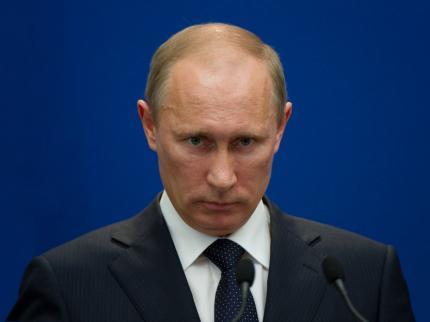
Sometimes, Vladimir Putin snarls and reveals his true self to the world. More often than not, one of his minions shows his teeth. This time, it was Sergey Karaganov’s turn to terrify the world with a short interview in the German weekly, Der Spiegel.
Karaganov is no bit player. Here’s how Der Spiegel identifies him: “Sergey Karaganov, 63, is honorary head of the influential Council on Foreign and Defense Policy, which develops geopolitical strategy concepts for Russia. ... Karaganov is an advisor to Vladimir Putin's presidential administration and deacon of the elite Moscow college National Research University Higher School of Economics.”
In a word, Karaganov is speaking for Putin. And what he has to say reveals the full and frightening extent of the Putin regime’s chauvinism, imperialism, and paranoia.
Large parts of the interview sound reasonable, even if imbued with fundamental misunderstandings of reality. Thus, Karaganov’s claims about NATO enlargement could easily have been made by former Secretary of State Henry Kissinger or University of Chicago political scientist John Mearshimer: “We warned NATO against approaching the borders of Ukraine because that would create a situation that we cannot accept.” Indeed, it’s no accident that the print version of the interview features a photograph of Karaganov standing next to a prominently displayed copy of Kissinger’s Diplomacy. The message should be clear: Karaganov, like his boss, is just a hard-nosed realist.
Fair enough, but, while the realism of Kissinger and Mearshimer is based on logic and a lamentable ignorance of Ukraine and its relationship with Russia, Karaganov’s is based on logic, Russian megalomania and paranoia, and a lamentable ignorance of reality. Scratch beneath the polished surface of Karaganov’s realism and you encounter a crazy Russian nationalism that threatens world peace while propagating world salvation.
If Karaganov restricted his comments to the claim that NATO enlargement was a threat to Russian security, one could let him slide. But he genuinely appears to believe that NATO wants war with Russia. That’s absurd for so many reasons. For starters, that conclusion is based on a profoundly illogical leap—from the claim that NATO is a security threat to the claim that NATO wants war. That’s a non sequitur, as Karaganov should have learned in high school. Moreover, if anybody knows the true condition of NATO, it has to be Karaganov. He has to know that, ever since the end of the Cold War, NATO has been without mission and vision, and that its member states have utterly failed to modernize their armed forces. NATO has about as much ability to mount a war against Russia as Ukraine.
How then is it possible for a hard-nosed realist such as Karaganov to entertain the absurd idea that NATO is ready, willing, and able to embark on war with Russia? Consider in this light Hitler’s views of Jews. There is no way that one can rationally argue that Jews posed a threat to Germany. And yet, it is unquestionably true that Hitler sincerely believed them to be a threat. Why? Because of his peculiar psychology and his crazy ideology. So, too, with Karaganov—as with Putin—fear of NATO is grounded, not in any empirical reality, but in the megalomaniac, paranoid perceptions of the current Russian elite.
Hence such statements by Karaganov: “you have to understand that Russia is very sensitive about defense. We have to be prepared for everything.” (Everything? Really? Including a nuclear attack by France or an invasion by Finland?) And especially this: “we want the status of being a great power: We unfortunately cannot relinquish that. In the last 300 years, this status has become a part of our genetic makeup. We want to be the heart of greater Eurasia, a region of peace and cooperation. The subcontinent of Europe will also belong to this Eurasia.”
Read these lines carefully. On the one hand, Karaganov clearly suffers from a superiority complex, as his talk of great power status being part of the Russian genetic makeup suggests. On the other hand, despite this megalomania, he’s absolutely terrified of the world, as his talk of sensitivity reveals.
Both pathologies are manifestly evident in the following exchange:
SPIEGEL: Russian politicians, including President Vladimir Putin, are trying to convince their population that the West wants war in order to fragment Russia. But that's absurd.
Karaganov: Certainly there has been some exaggeration. But American politicians have openly said that the sanctions are aimed at bringing about regime change in Russia. That’s aggressive enough.
In Karaganov’s twisted universe, as in Putin’s, mere talk by Westerners of regime change—by ballot, after all, and not by force of arms—in Russia is, evidently, equivalent to a declaration of war against Russia. Note that this equivalence rests on another equivalence: that Putin is Russia.
Small wonder that the West in general and Russia’s neighbors are terrified of Putin, Karaganov, and the psychological and ideological pathologies that define them. In effect, Karaganov is promising to subordinate them to Russia’s will.
After all, what else but subordination could Karaganov have in mind when he says: “We want to be the heart of greater Eurasia, a region of peace and cooperation. The subcontinent of Europe will also belong to this Eurasia.”
Karaganov’s greater Eurasia will be Putin Russia writ large, and the subcontinent of Europe will be transformed into Putin’s fiefdom. That is the peace and cooperation of the Gulag.
OG Image: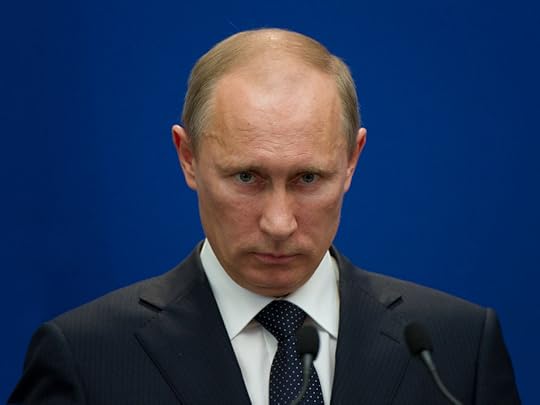 Europe and Central AsiaRussiaGermanGermanyVladimir Putin
Europe and Central AsiaRussiaGermanGermanyVladimir Putin
July 15, 2016
Ukraine is Winning on the Linguistic Battle Front

Many Ukrainians are persuaded that their language is dying out. Many Russians and Russian speakers believe Ukrainian is incapable of serving as a means of sophisticated communication among educated urban dwellers.
Both are wrong. In fact, the Ukrainian language may be doing far better than its supporters and detractors suspect.
Forget the statistics, which are useful but cannot capture what is really taking place on the ground. Instead, take a look at the remarkable growth of the YE chain of bookstores in Ukraine.
YE—written Є in Ukrainian—means “it is” or “there is,” a boldly self-assertive claim that the Ukrainian language, despite the insistence of Russian chauvinists since tsarist times that “it never was, is not, or will be,” in fact IS.
YE is unique in that it specializes in Ukrainian-language books. A few shelves might offer some Russian- and English-language products, but easily 95 percent of all the books YE sells are in Ukrainian. In most of Ukraine’s bookstores, the proportion is likely to be tilted in favor of Russian-language books, sometimes overwhelmingly so.
For years, detractors of Ukrainian argued that bookstores were acting rationally, on the grounds that there was no demand for Ukrainian-language books. Indeed, how could there be demand for a peasant tongue and dialect of Russian? YE, the brainchild of Ukrainian journalist Yuri Makarov and Austria’s ECEM Media GmBH, decisively proved them wrong. (ECEM also publishes the thriving Ukrainian- and English-language weekly, Ukrainian Week.)
YE’s first bookstore opened on December 21, 2007 in Kyiv, behind the Opera House. Today, just 8 ½ years later, YE boasts 20 bookstores: seven in Kyiv, two apiece in Lviv, Kharkiv, and Dnipro (the former Dnipropetrovsk), and one apiece in Ivano-Frankivsk, Vinnytsia, Ternopil, Volodymyr-Volynsky, Rivne, Lutsk, and Khmelnytsky.
The geographic distribution is significant. Seven stores are located in western Ukraine (Lviv, Ivano-Frankivsk, Ternopil, Volodymyr-Volynsky, Rivne, Lutsk), where one expects demand for Ukrainian-language product to be highest. But nine are in central Ukraine (Kyiv city, Vinnytsia, Khmelnytsky). And—most impressive—four are in eastern Ukraine (Kharkiv, Dnipro), where, according to legend, no one cares to use Ukrainian. The seven in capital city Kyiv are also striking, as the language one hears on its streets is overwhelmingly Russian.
Clearly, Ukrainian-language books sell and can sell. Moreover, they sell even during times of extreme economic distress: YE opened several bookstores in the last two years, at just the time that Ukraine’s GDP was contracting by about a fifth.
The message should be obvious: Ukrainians very much want to read books in their own language. Unsurprisingly, a large, and growing, number of publishers have emerged in recent years to meet that demand.
The implications of YE’s success are clear. For starters, Ukrainians want the Ukrainian language and demand for Ukrainian-language products is high, perhaps even being what economists call “inelastic,” remaining high despite rising costs and growing economic distress. Moreover, although demand is higher in the west, it’s highest in Kyiv and quite respectable in the east.
But the most important implication is this: If Ukrainians want Ukrainian-language books, is it plausible to think that they do not want Ukrainian-language newspapers, magazines, radio, television, and film?
YE’s success proves that Ukraine is, despite the indifference of its ruling elites, the hostility of Russian nationalists, and the opposition of Russia, experiencing a grassroots, creeping Ukrainization. That’s the most effective kind of linguistic change: from below. It takes time, and it annoys linguistic purists and radicals, but its major advantage is that it sticks.
And creeping Ukrainization heralds Vladimir Putin’s worst nightmare: Ukraine’s eventual separation from Russia, not just politically and economically, both also linguistically and culturally.
OG Image: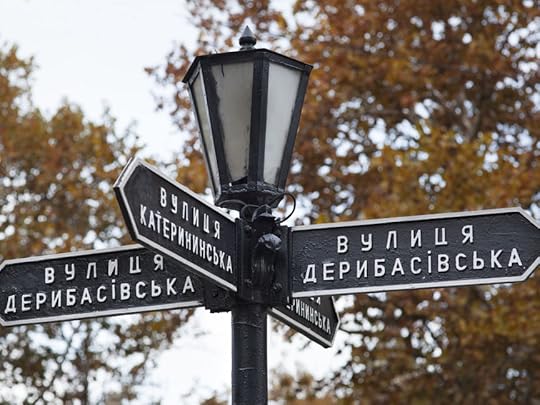 Europe and Central Asia
Europe and Central Asia
July 7, 2016
Culture and Corruption in Ukraine
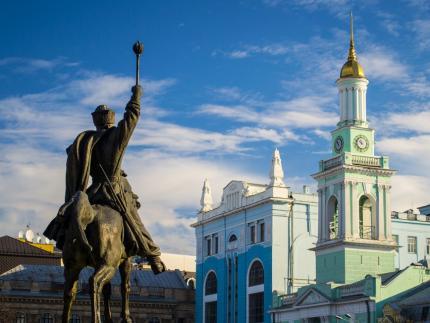
Peter Zalmayev is director of the Eurasia Democracy Initiative, member of the board of the NY Chapter of the American Jewish Committee, and international outreach coordinator for the Babyn Yar Project for the Ukrainian-Jewish Encounter.
Motyl: You just returned from the Bruno Schulz festival in Drohobych. How did a Russian-speaking Jewish Ukrainian from Donetsk become interested in a Polish-Jewish writer from Galicia?
Zalmayev: I came upon Schulz in an article by the prominent Israeli writer David Grossman, published in 2006 in The New Yorker. When I picked up Schulz’s stories, I felt just like Grossman: “You open a book by an author you don’t know, and suddenly you feel yourself passing through a magnetic field that sends you in a new direction, setting off eddies that you’d barely sensed before and could not name.” Soon, I set to collect everything connected with Schulz. I realized that I was not alone in my Schulzian obsession. His many enthusiasts include Philip Roth, Cynthia Ozick, John Updike, Salman Rushdie, and Isaac Bashevis Singer.
A few weeks ago, I attended the VII International Bruno Schulz Festival, which is held biennially in Drohobych, where Schulz was born, lived, and died from a Gestapo officer’s bullet in 1942. I went there to present the book I published: Schulz’s major story and, in my opinion, the pinnacle of his art—“Sanatorium under the Sign of the Hourglass”—with new illustrations by a talented young Kyiv-based artist. Published as a signed, numbered, and limited edition, the book was distributed free of charge to Festival-goers and fellow Schulzians, as my modest contribution to the great master’s legacy.
Motyl: How does Schulz fit into the cultural relations among Jews, Poles, and Ukrainians?
Zalmayev: Just like his native Drohobych, Schulz and his work are located at the crossroads of Polish, Jewish, and Ukrainian cultures. Although embodying each of them in their interiority and universality, he and his work do not fully belong in any one culture. Schulz’s importance to Polish literature is similar to that of his friend Witold Gombrowicz. Likewise, Israel deems him a big enough part of the Jewish patrimony to have justified the commando-style operation (the infamous “Schulz-gate”), in 2002, to cut out walls with his frescoes and transport them to Yad Vashem.
Ukraine’s acceptance of the artist has been far from straightforward. Though the first Ukrainian translations of Schulz’s stories started appearing in the early 1990s, they were published in modest print-runs, while their author remained a virtual unknown outside literati circles. Finally, in 2013, the prominent “A-BA-BA-GA-LA-MA-GA” publishing house released a wonderful edition of Schulz’s entire fictional oeuvre in what some consider to be the definitive translation into Ukrainian by Yuri Andrukhovych, a major contemporary Ukrainian writer.
This year’s Festival was covered by Channel 5, which belongs to Ukraine’s President, as well as by several nationwide and local publications. Furthermore, in a welcome demonstration of the city officials’ willingness to go beyond the narrow partisanship of the “divide” between Shulz and Ivan Franko (a major Ukrainian classic writer from Drohobych) and to give the former his due, the mayor’s deputy addressed the participants at the opening session.
I hope that these developments will help cement Schulz’s legacy as the unifying, universalizing, cross-border artist that he was and lead to a greater cross-pollination among the three cultures.
Motyl: You’re involved in the preparations for the forthcoming commemoration in Kyiv of the Babyn Yar massacre. What’s being planned?
Zalmayev: The Ukrainian-Jewish Encounter, a Toronto-based NGO committed to promoting stronger and deeper relations between the two peoples, in cooperation with Jewish and Ukrainian civic leaders and with scholars and cultural figures from Ukraine and abroad (including Timothy Snyder, Bernard Henry-Levy, Charles Bronfman, Ronald Lauder, and Viktor Pinchuk), is undertaking four discrete programs: 1) a youth conference, which will bring together 150 young people from Ukraine, North America, Europe, and Israel for a week-long program to deal with issues of historical memory and civic responsibility; 2) a 2-day public symposium dealing specifically with the September 1941 Babyn Yar massacre in Kyiv, at which a multi-authored book on the tragic event will be presented; 3) a symphonic memorial concert to be held at the Kyiv Opera; and, finally, 4) the announcement of the top three submissions of the UJE-sponsored international competition for a landscape design that will transform Babyn Yar into a historic preservation site.
Separately, UJE and Ukrainian-Jewish leaders plan to honor Ivan Dziuba in a special ceremony. Dziuba is a famous literary critic who in 1966 was one of the Ukrainian non-Jewish intellectuals who had joined an unofficial commemoration broken up by the Soviet police and KGB, giving a famous speech at Babyn yar on Ukrainian-Jewish solidarity. The speech was clandestinely published as samizdat and circulated in the Soviet Union and abroad.
Motyl: As a former Donetsk resident, how do you view the ongoing war in the eastern Donbas? Are you still in touch with friends and relatives in the region?
Zalmayev: Witnessing my native region torn apart by war has been a personal tragedy. To have the topography of your childhood family sojourns turn into a map of battles is probably what is meant by the Chinese curse: “may you live in interesting times.” These have, indeed, been “interesting” times, for my native region, and for Ukraine as a whole, situated betweеn an increasingly weak Europe and Putin’s revanchist Russia. I am unhappy by the “choice” in favor of the latter, which has been foisted on the people of the Donbas. Alas, that is what they have to live with for the foreseeable future, and I am skeptical as to any quick solution to the problem. Indeed, the “frozen conflict” scenario modeled after Transnistria is already a fact of life and can persist for many years.
I do try to stay in regular contact with my former classmates and relatives in Donetsk: those among them who never left and those who have had to return from whichever part of Ukraine they had originally fled to. People are capable of infinite adjustments to levels of the “normal”. Non-stop artillery fire on the periphery notwithstanding, Donetsk has by now established its own new “normal,” which, though largely limited to the city center, reportedly bustles with cafes and bars, mothers with strollers, teenagers necking on park benches.
Motyl: You've been involved in a variety of anti-corruption efforts in countries of Central Asia, and, specifically, Kazakhstan. Could you discuss these activities in greater detail?
Zalmayev: The Eurasia Democracy Initiative (EDI) has been an active participant in transnational initiatives fighting corruption in post-Soviet countries. We have organized high-level briefings on the issue in a variety of international fora, such as OSCE Parliamentary Assembly sessions, and, most recently, took part in a panel of experts on corruption in Kazakhstan, which was hosted in May by Chatham House, in London.
Nothing has personified the rottenness of Kazakhstani President Nursultan Nazarbayev’s regime as vividly as his former son-in-law, the once all-powerful deputy chief of the Kazakhstani KGB and chief of tax police, the now late Rakhat Aliyev. For many years, while in presidential favor, Aliyev acted as the regime’s thug-in-chief, personally torturing opposition leaders and business opponents and hounding them into exile. He would then take over their businesses to add to his own mushrooming business empire, which at its height included a monopoly on the sugar industry and large market shares in the banking and telecommunications sectors.
Then, when his lucky star burned out, in 2007, and he was accused of masterminding a plot to overthrow his father-in-law, Aliyev went into exile in Austria (where he had served as Kazakhstani ambassador to Austria and the OSCE prior to his fall from grace), and then Malta. While on the run and in order to evade accountability, Aliyev tried to don the mantle of a principled fighter for democracy and against Nazarbayev’s dictatorship. Having siphoned off and stashed away hundreds of millions of dollars, Aliyev was able to lawyer up and game the EU’s justice system for years, fighting off lawsuits by his former victims and now fellow-exiles on the one hand, and the extradition demands from the Kazakhstani government on the other. Aliyev went from Austria to Malta, then, via Cyprus, to Greece, where he was denied refuge, and so had to give himself up to the authorities back in Vienna, having thus come full circle. In February 2015, he hanged himself in his prison cell, while awaiting trial on murder charges.
EDI has since its founding in 2008 partnered with Kazakhstani (and other Central Asian) political exiles, victims of their respective regimes, to bring public scrutiny in the West to figures such as Rakhat Aliyev and Viktor Khrapunov, former mayor of Almaty, and their attempts to game the European financial and judicial systems in order to safeguard their ill-gotten gains and evade responsibility for their crimes. Our argument has been simple: once you give them shelter on your soil it becomes your responsibility to investigate them, try them, and bring them to requisite justice.
Motyl: How does corruption in Ukraine compare with corruption in Russia andKazakhstan?
Zalmayev: On Transparency International’s Corruption Perceptions index for 2015, the three countries cluster close together, with Russia being 119th, Kazakhstan 123rd,and Ukraine 130th out of 169.
All three post-Soviet states have inherited communist apparatchik old-boy networks, which quickly found their footing in the days following the break-up of the Soviet Union. Having orchestrated rigged privatization schemes for the purpose of plundering their countries’ resources, former party bosses-cum-newly-baked-crony-capitalists laid the ground for the sad socio-economic stratification that persists to this day, albeit with some fluctuations: the tiny minority of oligarchs and the merely super-rich, the fledgling, vanishing middle class, and the vast majority of have-nots.
All three now find themselves at the mercy of buffeting winds of popular (and populist) rage caused by a severe economic downturn and the perception that the “system is rigged” to benefit the rich, especially in the wake of scandals such as the “Panama papers” leaks. The differences among the three lie in their respective response to this discontent: in Russia and Kazakhstan—both authoritarian, statist, increasingly sclerotic political systems—any genuine debate on corruption has been muted, relegated to isolated bloggers and fledgling, small print-run opposition newspapers. In Ukraine, where each major and minor oligarch seems to possess his own TV channel, even minor scandals or non-scandals involving a politician invite a storm of recriminations and soul-searching, often, alas, of populist hue.
Hence, anti-corruption crusader Alexey Navalny’s investigation of the Russian Prosecutor General’s and his sons’ apparent links to organized crime garnered almost 5 million views on Youtube and, in a western democracy, would have been sufficient toland him in jail and possibly unseat the head of state. This being Russia, the Prosecutor remains firmly in his job. Similarly, the “Panama papers” leaks indicating that Putin’s cronies have stashed away at least $2 billion have been explained away as outlays for the purchase of “musical instruments.” In Kazakhstan, the revelations from the same “Panama papers” point to serious graft on the part of members of the President’s family, including his eldest grandson. With the Kazakhstani opposition having been largely emasculated or run out of the country, it has been left to exiled former Prime Minister Akezhan Kazhegeldin to cry in the wilderness. Kazhegeldin has urged Western powers to apply the policy of “cryptonomics” when dealing with corrupt third-world regimes like Kazakhstan: freezing stolen assets with their eventual repatriation to the source, once conditions warrant.
In post-Euro-Maidan Ukraine, by stark contrast, the same Panama leaks revealed a very modest story of President Poroshenko’s registration of his legitimate offshore accounts, committed with only apparently minor, largely symbolic improprieties. Yet what a storm of indignation and mud-slinging that caused in Ukraine’s media!
Motyl: So what’s the solution to endemic corruption?
Zalmayev: The fight against corruption has no quick-fix solutions, contrary to whatpolitical figures like the Radical Party boss Oleh Liashko and the Odessa governor and former President of Georgia Mikheil Saakashvili seem to offer. The latter’s thuggish ways and extortionist prescriptions backfired against him during his second presidential term in Georgia, and Saakashvili has been demonstratively ineffective in his current stint in Odessa, where his list of accomplishment is paltry to non-existent.
Fighting the hydra of corruption is a slow and painful slog. How long it will take for Ukraine to catch up even to such EU laggards as Bulgaria or Romania I do not profess to know. But one thing is certain: straightjacketed as Ukraine is by obligations to its Western defenders against Putin’s aggression and caught on the IMF tranche-disbursement hook, there is simply no going back to business as usual, to the Yanukovich-era free-for-all, in Ukraine. In that sense, it’s definitely turned a corner.
OG Image: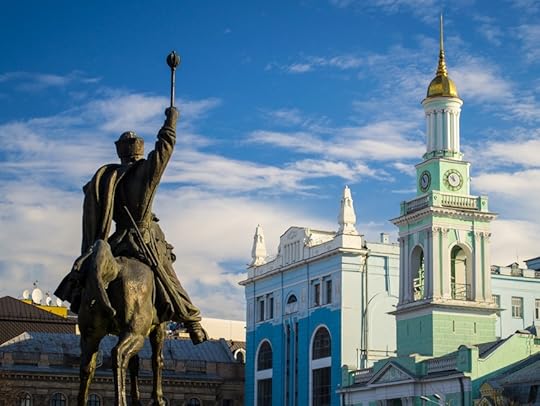 Europe and Central AsiaUkraine
Europe and Central AsiaUkraine
June 27, 2016
War and Energy in Ukraine
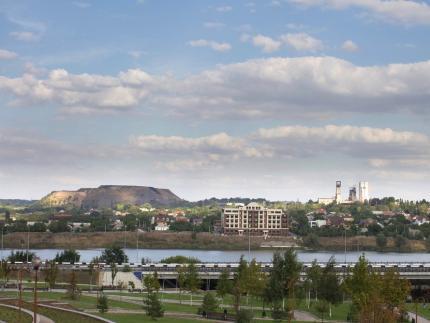
The following is an interview with Margarita Balmaceda, Professor of Diplomacy and International Relations at Seton Hall University. She is the author of The Politics of Energy Dependency: Ukraine, Belarus and Lithuania Between Domestic Oligarchs and Russian Pressure.
MOTYL: In your books you maintain that independent Ukraine inherited a highly inefficient energy system centered on the Donbas that became increasingly controlled by regional elites and oligarchs who used subsidies to line their pockets while producing less energy for domestic consumption and neglecting the needs of Donbas residents and Ukrainians. How has the ongoing war with Russia affected this system?
BALMACEDA: The war has affected this system in three key ways. First, Kyiv has stopped financing the coal mines located in the secessionist territories.
Second, the conflict has disturbed the coal-coke-metal vertical integration systems built by eastern Ukrainian oligarchs since 1991. In some cases, parts of these integrated systems, such as coke plants, are located inside secessionist territory, while the metallurgical plants they supply are in in Kyiv-controlled territory. This has required owners to develop “creative” solutions to keep their plants and the system operational. It has also meant significant losses. In many cases owners have kept plant workers employed to support a modicum of good will as well as safeguard their assets. In some cases, plant workers have practically moved onto plant premises because these properties are safer than others.
Third, the conflict has also disturbed the Donetsk Basin geographically interconnected coal-coke-metal system accounting for more than half of Ukraine’s coal-and-metallurgy industry components. Many of the system’s components are located in the “gray zone” between government- and secessionist-controlled areas, as well as in the Russian side of the border. The war has made it significantly more difficult to move raw materials and products across internal boundaries and international borders with Russia. Just last week, the Donetsk Steel Works owned by Viktor Nusenky’s Donetskstal had to stop operations due to problems with the rail transportation of raw materials and finished products.
These are complex issues. For example, secessionist leaders in Donetsk have put pressure on the company to re-register in the so-called DNR so as to oblige the company to pay taxes to the DNR authority, but managers have refused because if they reregistered there, the EU, its main export market, would refuse their products.
MOTYL: How has the war affected the way Ukraine produces, purchases, and consumes energy?
BALMACEDA: There are three developments of note. The poor relations between Ukraine and Russia have forced Kyiv to purchase so-called “reverse supplies” of gas from Poland, Slovakia, and Hungary—this is gas that originated in Russia but is purchased from secondary countries. Given this arrangement, and given the recent mild winter, Ukraine has not purchased gas directly from Gazprom since November 2015. But Ukraine continues to depend on coal imports from Russia as it has largely lost access to coal produced in areas currently under “DNR” and “LNR” control. And, third, it’s noteworthy that Ukraine’s demand for energy imports declined with its declining GDP, which fell by 7 percent in 2014 and 12 percent in 2015 and has reduced demand considerably.
MOTYL: How has the war affected the power of eastern Ukrainian elites and oligarchs?
BALMACEDA: One of the key impulses for Ukraine’s Revolution of Dignity was the fight against corruption. Corruption was personified by President Yanukovych’s “family,” with various eastern oligarchs such as Rinat Akhmetov closely tied to that system. The war has diminished, but not erased his power. Akhmetov continues to have influence in the so-called “DNR” and “LNR” secessionist areas and he uses it as a bargaining chip with Kyiv.
More broadly, though the power of individual oligarchs such as Akhmetov may have declined, the oligarchic system is alive and well, as shown by the growing power of individuals like Ihor Kolomoisky. Some of these oligarchs are involved in property battles with the state–as in the struggle for control of the state-owned company Ukrnafta—yet, at the same time the state depends on their support of anti-secessionist operations. Needless to say, this complicates matters for the state.
MOTYL: Coal continues to play a key role in Ukraine’s economy. Could you describe how the war has affected that role?
BALMACEDA: Coal accounts for around 40% of electricity generation in Ukraine. The role of coal in Ukraine’s economy today has been driven largely by the legacy of the Soviet economic organization. The Donetsk Basin has been an important coal mining center since the 19th century. The Soviet industrialization and electrification drive capitalized on this to build a mighty coal and metallurgical complex in the area. The quest for rapid electrification led to the construction of many power plants that provide electrical power for Ukraine, each of which was designed to use the specific grades of coal available in the region. These specifications have limited the ability of some power plants to operate because the type of coal (mainly anthracite) traditionally used to fuel them is produced in mines now beyond the reach of Kyiv and under “DNR” and “LNR” control. And, given popular demand that no purchases be made from the separatist regions, Kyiv has turned to alternative supplies in South Africa which have been riddled with allegations of corruption.
MOTYL: What is the impact of coal subsidies in Ukraine?
BALMACEDA: In 2013 nearly two thirds of Ukraine’s state-owned mines were receiving state subsidies to offset the difference between the low price of coal and the much higher (at times nearly three times higher) cost to produce it. At the time, Ukraine spent nearly 3.5 percent of its budget on coal subsidies.
MOTYL: Is it fair to say that Ukraine derives no particular economic benefit from the occupied Donbas? Could one go so far as to say that Ukraine would be richer without the occupied Donbas—especially if it’s true that rebuilding the Donbas would cost $20 billion?
BALMACEDA: This is a difficult question to answer, as the whole system of prices and payments to Donbas mines has been and continues to be highly untransparent. In addition, Ukraine is a historical and economic unit and its regions are highly interdependent on one another, so it is hard to say that one region “costs” more than another. More generally, the desirability and appropriateness of the reintegration of Donbas cannot be reduced to an economic advantage issue.
MOTYL: How should Ukraine restructure its energy system?
BALMACEDA: Given the historically poor management of the coal industry and non-reversible geological conditions (difficult-to-mine resources, exhausted stocks, etc.), it will be impossible for Donbas to return to a coal-centered economy without significant costs to the state. Ukraine would be well advised to use the reintegration of the Donetsk and Luhansk regions now under separatist control as an opportunity to move their economy into forward-looking, high-tech areas rather than attempt a return to the previous status quo.
With respect to the national energy system important progress has been made on the top priority—reducing the country’s direct dependence on Russian supplies. Key measures have included modifying gas pipelines for reverse use, the importation of contractually non-Russian gas, the adoption of EU-conforming energy legislation, and the elimination of price differences between gas for residential and industrial consumers. The move to market-determined energy prices is unavoidable, but it needs to be accompanied by targeted subsidies for the most vulnerable sectors of the population, as well as an effective system of oversight that safeguards against corruption. In the long term, however, only a move towards greater energy efficiency and use of renewable resources can provide the basis for a more stable and sustainable energy system.
OG Image: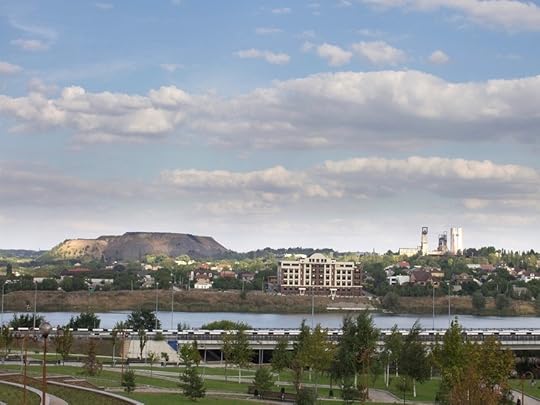 Europe and Central AsiaUkraineEnergyUkraine CrisisEnergy DevelopmentEconomy
Europe and Central AsiaUkraineEnergyUkraine CrisisEnergy DevelopmentEconomy
June 17, 2016
Though Progress is Genuine, Reform Must Accelerate in Ukraine
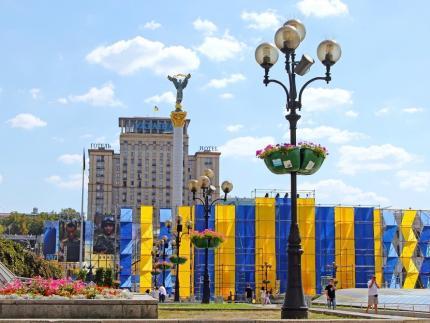
The following is an interview with Myroslav Senyk, former head of the Lviv Province Council and current Vice Rector for Administration and Development of the Ukrainian Catholic University in Lviv.
MOTYL: Most people in the West, as well as most Ukrainians in Ukraine, are persuaded that corruption in Ukraine has either remained unchanged or gotten worse in the last two years. Do you agree with either of these views?
SENYK: The facts argue for the opposite. If you speak to Ukrainian businesspeople, as I do on a regular basis, they’ll tell you that corruption has decreased several fold in the state tax service, the police, the procuracy, as well as in a host of inspection agencies related to the environment, health, and fire prevention. Bankers who deal with foreign capital are generally positive in their evaluations of the National Bank’s efforts to improve financial markets. There have also been positive changes in capital markets. And it’s also important to note efforts made by both the government and president to improve conditions in our large state-owned monopoly-enterprises such as Ukrainian Railroads, the oil giant Ukrnafta, the Ukrainian gas extraction agency Ukrhazvydobuvannya, and others. Obviously, there are many other sectors, such as customs, where little change has occurred, but that’s no reason to claim that nothing has happened on the anti-corruption front.
MOTYL: If so much change has actually taken place, why are people convinced that nothing has changed?
SENYK: If you consider that President Poroshenko has begun a genuine “de-oligarchization” of the country—possibly out of conviction or possibly under pressure from internal and external actors—and if you recall that most mass media outlets in Ukraine belong to the oligarchs, then it’s not surprising that the media are disseminating this view so as to undermine the President’s efforts and consolidate their own position.
MOTYL: What is the current administration doing wrong?
SENYK: Reforms can work only if they are supported by the overwhelming majority of the population. I remember when our neighbors, the Poles, introduced unpopular economic reforms in the 1990s. Leading national figures such as the now deceased Jacek Kuron appeared daily on television to explain, in comprehensible language, the content and necessity of the reforms. As a result, Polish society accepted the reforms and they proved successful. In contrast, Ukraine’s president and government believe that no such dialogue is necessary, and, as a result, the reforms are misunderstood or rejected by the people. The President’s tendency to resolve important legislative issues by fiat has also undermined his credibility.
MOTYL: Decentralization actually appears to be taking off. Do you agree?
SENYK: On the one hand, there’s been a genuine financial decentralization and, as a result, local governments are better funded and more able to provide services. It’s impossible not to notice that conditions in our cities have improved in the last two years. Roads are being repaired, city squares are being renovated, and housing construction has increased. On the other hand, the consolidation of local communities into larger administrative units is proceeding very slowly, and there is still no clear division of authority between local administrative organs and the state.
MOTYL: How would you evaluate the reforms being undertaken in higher education?
SENYK: I can state with confidence that higher education has experienced very positive changes. The most important of which is that higher education institutions have acquired more academic freedom. In addition, private educational institutions may now receive state financing, and religious organizations now have the right to establish educational institutions. The Ukrainian Catholic University actively lobbied the Education Ministry, the President, the government, and the Rada with respect to all these issues.
MOTYL: How do you evaluate the reform process in Ukraine?
SENYK: Reforms are taking place, but not fast enough. I fear that, at this rate, reforms will drag on for another two-three years, with the result that they will fail because the people won’t wait that long for their lives to improve. In order to avoid chaos, we need to ramp up reforms greatly. There are three priorities. First, the courts must become independent, effective, and fair. People must believe that crime will be punished and that their rights will be defended. Without such courts, the fight against corruption will fail. Second, the pension system must be reformed. At present, one working person supports two or more non-working persons. At some point the retirement age may have to be raised; in the meantime, the number of early retirees has to be lowered. If something isn’t done soon, business may simply stop making contributions to the pension fund. Third, the medical system has to be fixed and decentralization completed.
I’m persuaded that the President, government, and Rada understand what needs to be done. They appear to have the political will to implement change. I think that a year from now we’ll see positive changes in Ukrainian society.
OG Image: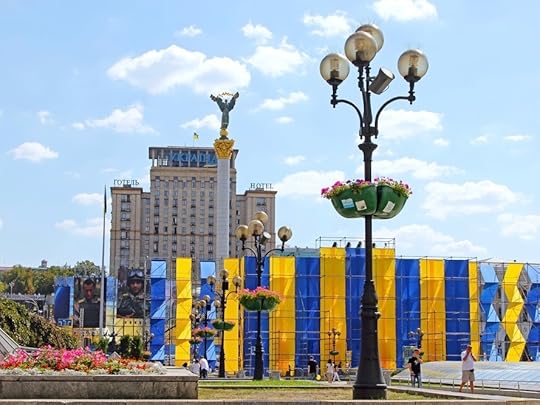 Europe and Central AsiaUkraineReformsDecentralizationEconomic ReformsCorruption
Europe and Central AsiaUkraineReformsDecentralizationEconomic ReformsCorruption
June 13, 2016
When Downsizing is a Good Thing for a State

MOTYL: Professor Lustick, let’s begin the conversation with your provocative theory of “right-sizing” states. What’s the gist?
LUSTICK: The basic point is pretty obvious. If a person is too thin, gaining weight is a good thing, but not if the weight gain is all in the stomach. To take a more extreme example: If a person is overweight, losing pounds is a good thing, but not if it is achieved by decapitation or sawing off one’s right arm. “Right-sizing” a state is the idea that—although it is dangerous and usually wrong to change a country’s borders when those borders have been settled and have taken on a sense of stability and naturalness—there are circumstances when it can be entirely appropriate to alter the size and shape of a state for the state’s own good and for the welfare of the nation, people, or population that identifies with it.
MOTYL: If the theory makes so much sense—and I agree that it does—why isn’t it practiced more often? What are the main obstacles to right-sizing?
LUSTICK: States commonly seek to get bigger, but more often than not they “wrong-size” themselves by doing so. Except for perhaps a temporary boost to the popularity of the leadership that promises that expansion will yield a bigger pie to divide among their followers, the costs of maintaining rule over far-flung territories and exploited and unhappy indigenous peoples usually vastly outweighs the benefits that can be sustained over a long period of time. That means, however, that many states are bigger than they “should be,” raising the question you have asked: why don’t more states shrink strategically? The reason is that getting smaller is almost always perceived as shrinking the size of the available pie and diminishing the prestige of those who identify with the state. So it is always more difficult to contract rather than expand, even if, strategically, it is likely to be very advantageous to do so. As you can imagine, it is far easier to label a leader who favors withdrawing from a territory a coward or a traitor to the national (or imperial) cause, than it is to challenge the patriotism of a leader embarking on a “glorious” campaign of expansion—one that would typically be characterized as being demanded by the historical (or divine) rights of the nation or its security requirements.
MOTYL: Such as Vladimir Putin in Crimea and the occupied Donbas?
LUSTICK: Exactly.
MOTYL: So the primary obstacles to right-sizing would typically be domestic? That is, while right-sizing may make states objectively stronger, the action will be perceived as an act of weakness by the political opposition?
LUSTICK: Generally speaking, yes. Whether it is an overextended army that would strengthen its position against an adversary by a strategic retreat to consolidate forces (think of Hitler’s generals trying to convince him to retreat from Stalingrad), or it is an over-extended empire or nation state trying to maintain control over territories it cannot rule effectively, the decision to contract, or right-size, is always made in anticipation that a short-term sacrifice will produce a longer term benefit. Naturally there will be some who genuinely and honestly disagree with such an assessment. There will also, always, be those out to score easy political points against opponents. They will cast the right-sizers as traitors, fools, or cowards—insufficiently confident in the cause, conviction, or resources of their political community.
MOTYL: What are some successful examples of right-sizing?
LUSTICK: In ancient times, perhaps the most famous example of state contraction as a route to right-sizing is Hadrian's decision to withdraw the Roman Empire from the Mesopotamian territories beyond the Euphrates River his predecessor, Trajan, had conquered and sought to rule. Though unpopular at the time, Hadrian's decision is widely recognized by historians as a prime example of wise and prudent statesmanship that helped secure Rome’s vital interests. Though fraught with danger to himself and the Fifth Republic, Charles de Gaulle’s successful contraction of France from “Algerie francaise” was a major accomplishment to which can be attributed the continued success and stability of the Fifth Republic. Though Britain would have benefited from contracting itself out of Ireland earlier and more thoroughly than it did—thereby avoiding decades of civil strife and a near coup in 1914—the immediate post-WWI government of Lloyd George did manage to shrink the British state by withdrawing from 21 “southern” Irish counties in 1922.
MOTYL: Any unsuccessful examples?
LUSTICK: Prime Minister Gladstone in the 1880s and early 1890s, and Prime Minister Asquith (along with Winston Churchill) in 1911-1914, tried and failed to right-size the British state by devolving virtual independence upon all of Ireland via the First, Second, and Third “Home Rule for Ireland” Bills. Each went down in defeat as a result of mass mobilization against state contraction and, in 1914, real threats of civil war by Protestant settlers in Ireland, leaders of the Conservative-Unionist Party, and high-ranking military officers.
A spectacular failure of right-sizing, applied to the non-territorial size of the state, occurred in the Soviet Union. Mikhail Gorbachev essentially believed it would be possible to greatly reduce the scope and power of the Communist-controlled state in the Soviet Union without that affecting its geographical definition. Given the weakly institutionalized status of Soviet boundaries, however, political perestroika swiftly entailed geographical perestroika as well, leading, not to a smaller, stronger Soviet Union, but its abrupt demise.
In the 1990s Prime Minister Yitzhak Rabin’s Labor Party-led government sought to use the Oslo Agreement with the PLO to contract Israel out of enough of the West Bank and Gaza Strip to achieve peace by right-sizing the Israeli state. But this foundered as a result of Rabin’s hesitancy to risk a showdown with settlers and their ultranationalist and religious supporters. Ultimately Rabin was assassinated by a Jewish fundamentalist who accused him of treason because of his right-sizing policies. Since then, with more settlements, more violence, and unprecedentedly right-wing governments in Israel the prospects for state contraction are dimmer than ever.
MOTYL: So what combination of factors makes for successful right-sizing?
LUSTICK: One key element is that the core of the state is well institutionalized and not dependent for its legitimacy, or the naturalness with which its citizens relate to it, on its continued rule of the problematically ruled territory. Another is that the political echelons be able to take decisions about the fate of the outlying territory without worrying that key elements in the society will violently challenge their legal right to do so. Finally, in a democratic country, it helps if state elites do not face imminent elections, thereby allowing the downstream positive results associated with contraction to become apparent before they face an initially skeptical or angry public. All in all, one immensely difficult barrier to state contraction is the presence in the outlying territory of a politically influential population of “settlers” with close political and communal ties to leading groups within the core state’s military and within its leading political parties.
MOTYL: What are your recommendations for Israel? How have Israelis responded?
LUSTICK: After three and a half decades of advocating territorial right-sizing by Israel as a route to peace, I’ve regrettably concluded there is no plausible route to a "two-state solution” via negotiations between Israel and Palestine that can be based on territorial contraction of the Israeli state. I am therefore now suggesting that Israelis and Palestinians focus not on the specific political institutional and territorial features of the ultimate solution they would favor, and instead struggle, with respect to every specific issue that arises, for steps that produce more democracy for all inhabitants of the country between the Jordan River and the Mediterranean Sea, more equality between Jews and Arabs, and more respect for each nation’s right to non-exclusivist forms of self-determination. New political alliances will need to form, and they can only evolve organically—a process that will be fostered by the creative and passionate application of new thinking about the sources and drivers of the conflict.
I have found Israeli moderates deeply divided. Those committed to fighting in the same way they have been for years for Israeli withdrawal from the West Bank are not ready to think differently, even though they despair about the prospects of that cause. But there are also moderates who find my approach inspiring because it justifies thinking and acting on the basis of values they are sure of without having to justify their search and their work by sketching an impossible blueprint for how, exactly, peace will be achieved.
In essence, it may be that right-sizing is simply no longer a useful approach for Israel compared to reconfiguring a single large state that does exist, ruling the country from the river to the sea.
MOTYL: Clearly, right-sizing can work. At the same time, it’s no magic potion. What would your general recommendations for Ukraine and Russia be? Who should right-size with respect to Crimea and the occupied Donbas—Ukraine or Russia or both?
LUSTICK: “Should” is a difficult word. Let’s imagine we don’t know anything about this particular case and are simply asked: “Should country ‘A’ withdraw from territory ‘B’, which it currently rules?” What should we try to know about the situation before attempting to answer that question in a way that assures our answer will be consistent with a general rule for assessing what states and peoples should rule what lands and territories. I suggest that the key factors are the distributions of power and sentiment inside Russia, Ukraine, Crimea, and the Donbas, along with relevant international distributions of power and sentiment. In light of those factors, we must then ask which territorial dispositions have the best chance, or even a reasonable chance, of eventually becoming accepted as “natural” and therefore stable, and not a subject for armed conflict, in the future. Different analysts will respond differently to this question, but the key thing is to encourage them to argue their positions in terms of what arrangements will in the long run be the more stable, rather than which arrangement best conforms to the ideological, emotional, or economic interests of this or that community. As a relatively uninformed but interested observer, my hunch is that no arrangement is likely to be naturalized any time soon, but that one reasonable candidate for the most likely path to that objective would include Russian rule of a Tatar republic of Crimea and an independent Kyiv-based Ukraine integrated into the EU but not NATO, leaving the Donbas as a territory whose future is to be determined by a plebiscite that should include choices for remaining within Ukraine, annexation to Russia, independence, or autonomous status within either Ukraine or Russia. Whether such a plebiscite would or could be held soon is less important than the principle of treating the region’s future as to-be-determined and therefore possibly distinct from that of Ukraine.
OG Image: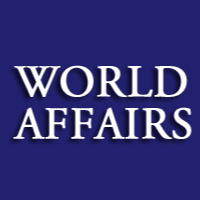 Europe and Central AsiaMiddle EastPalestineIsraelRussiaUkraineBordersIsraeli-Palestinian conflictRussia-Ukraine relationsDonbas
Europe and Central AsiaMiddle EastPalestineIsraelRussiaUkraineBordersIsraeli-Palestinian conflictRussia-Ukraine relationsDonbas
June 8, 2016
Ukraine's United Future Depends on Leaving Donbas in Its Divided Past
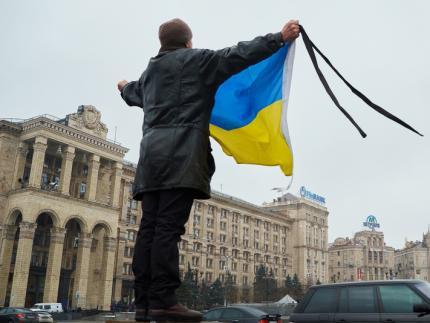
Before Ukraine can disengage from the occupied Donbas, it has to know just what disengagement means. Consider disengagement's opposite—engagement. If we are engaged, we are psychologically concerned about, ideologically committed to, and politically involved in some issue. Disengagement entails psychological indifference, ideological withdrawal, and political non-involvement with respect to that issue.
Disengagement is especially useful with respect to issues that lie beyond the powers of the actor concerned. The war in the Donbas will continue as long as Vladimir Putin wants it to continue, and Ukraine—and the West—must accept that fact. Nothing, short of Ukraine's capitulation or collapse, will assuage Putin. Ukrainians will continue to die as long as he wants them to die.
While the unnecessary deaths will and should preoccupy Ukrainians, the occupied Donbas should not. They cannot change the status quo, and they have far more important things to do at home—such as reform. After all, reforming the economy and transforming Ukraine into a powerful state is the sine qua non of its ability to withstand Putin's current or future aggressions. Simply put, no reform, no Ukraine.
Seen in this light, the occupied Donbas has cost too much in wasted lives and time. Focusing on it psychologically, ideologically, and politically only diverts Ukrainian energies and resources from the only thing that matters—Ukraine's survival as a strong, democratic, prosperous, and consolidated state. Disengaging from the occupied Donbas psychologically, ideologically, and politically is, thus, imperative.
It is also difficult. Ukrainians need to stop thinking of the occupied territories as "theirs." They need to stop viewing them as vital to Ukraine's nation- and state-building efforts. They need to stop devoting so much of their politics to finding solutions to the war. They need, in sum, to think about the occupied enclave as a foreign entity, which, thanks to Putin, is exactly what it is rapidly becoming.
The longer the war lasts, the longer the Donbas enclave known as the DNR-LNR continues to exist, the more likely will Ukraine become divided, willy-nilly, into two distinct and separate entities. Putin already directs the region's political, military, and economic affairs. The enclave has become a de facto province of the Russian Federation. Ukraine must recognize and accept that fact—and do nothing to change it. Inasmuch as the Minsk accords cannot force Putin to hold fair and free elections in the enclave and surrender control of the Russo-Ukrainian border, their preprogrammed failure as a viable peace-making process is in Ukraine's best interests.
The status quo in the Donbas is thus Ukraine's best-case scenario. The war is, despite the continued fighting and dying, for all purposes frozen. Ukraine should accept the frozen nature of the conflict, continue to support the Minsk process wholeheartedly, let Putin sustain the enclave on his own, and move on.
Ukrainians must let go of the Donbas enclave and concentrate on the priority that lies plainly ahead—its survival as a democratic and prosperous Western nation. Let the Donbas work itself out at another time—when Ukraine is strong, Putin Russia is weak, and the Donbas population realizes the dreadful mistake it made in siding with the Kremlin’s dictator.
OG Image: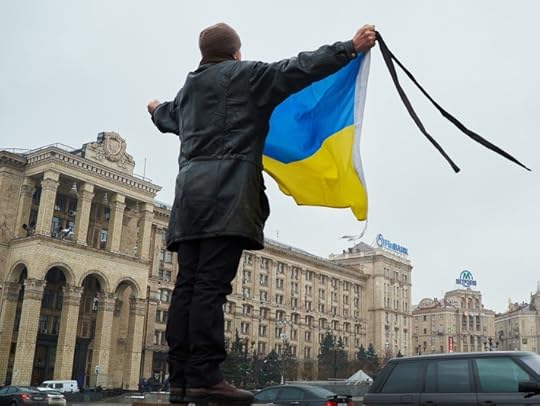 Europe and Central AsiaUkraineRussia
Europe and Central AsiaUkraineRussia
June 5, 2016
A Donbas Strategy Going Forward
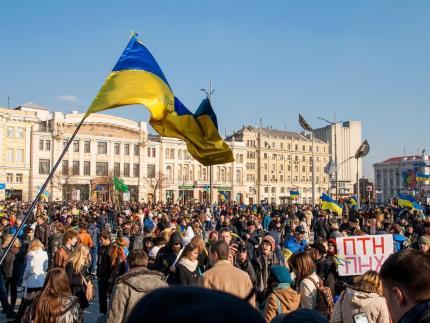
The following is an interview with George Woloshyn. George Woloshyn is a frequent commentator on Ukrainian affairs. He was the head of the National Preparedness Directorate at the Federal Emergency Management Agency and previously the Associate Director at the Office of Personnel Management during the Reagan Administration. He also served in the Navy Reserves as an Intelligence Officer.
MOTYL: How would you assess Vladimir Putin’s goals and strategies vis-à-vis Ukraine?
WOLOSHYN: Spring 2014 was a nearly perfect time for an invasion. Ukraine’s government was bankrupt and in disarray, and its military was unprepared. At that time Putin could have launched a conventional attack with seaborne marines, airborne paratroopers, and motorized infantry and armor. Instead, because the Kremlin could not know how the Transatlantic alliance would react to a massive intervention close to its borders, Putin opted for a hybrid strategy that created confusion and a certain (though temporary) plausible deniability in the West that allowed him to achieve through stealth and disinformation what he dared not risk overtly. Despite his bluff and bluster, Putin understands that neither Russia’s economy nor its conventional military would prevail in open conflict with NATO, and that the Kremlin’s pretensions to superpower status matter only in a doomsday scenario where all sides lose.
Putin’s objective was to seize control over Ukraine’s lower half and to formalize it into a “Novorossiya” region that would soon separate from Ukraine, and to be annexed by Russia. The hybrid strategy was designed to achieve that under the cover of a faux civil war by supporting criminal gangs and extremist Russian loyalists within Ukraine to front for the Kremlin as it seized power from weak, corrupt, and disoriented local governments across the region—many of which were sympathetic or bought from the outset. However, Ukrainians confounded Putin’s stratagem, leaving only the Donbas enclave as his consolation prize in place of his grander plan that failed. But the enclave, alone, was not his objective.
MOTYL: How do you assess the current military standoff between Ukraine and Russia?
WOLOSHYN: Russia’s annual defense budget is about $60 billion, or 5 percent of its GDP. These funds support a frontline ground force of about 770,000 troops, many of which are poorly trained and ill-equipped conscripts with decrepit, Soviet-era hardware—and most of which are deployed in Eastern Russia. In the aftermath of the dispiriting Georgian conflict, the Russian military launched a significant effort to upgrade its force readiness, but two-thirds of its ground forces still follow the old Soviet model. Only a quarter of Russian forces are fully staffed, well-trained, professional troops.
Much of Russia’s defense industry is also atrophied. It continues to lag far behind in key technologies, and many international sources for components have dried up because of sanctions. Putin’s ambitious $700 billion “modernization” program is now more PR than reality.
Ukraine, for its part, has come a very long way in the last two years. In 2014 its defense budget was $700 million. This year it is $4 billion (4.5% of its GDP) despite enormous war-related economic burdens. Its active ground force of over 200,000 troops, though still very much a work-in-progress, is among the largest in Europe, and is acquiring invaluable combat experience.
Much of Ukraine’s defense industry is undergoing a revitalization and modernization program. It is designing, producing, upgrading, and repairing military hardware and its progress is noteworthy. In 2014, Ukraine produced five “Oplot” tanks. Today Ukraine produces 125 per year. It is mass-producing anti-tank weapons with a 5km range, and its new 120mm mortar can fire 16 rounds/minute a distance of four miles. It is replacing the venerable AK-47 with a lighter and more accurate “Maluk”. Although Ukraine will not match Russia’s full military strength, it will soon be ready to respond to the forces Russia can mobilize in the region. It is estimated that Putin would have to deploy a force twice the size of Ukraine’s forces to launch a successful attack across the border. This would require a substantial redeployment of Moscow’s ground forces—placing a significant demand on the Kremlin’s fragile economy and at the risk of massive casualties—not to mention that the troop repositioning could expose other vulnerabilities on Russia’s other borders.
MOTYL: Do you think Putin will escalate in the Donbas?
WOLOSHYN: Nobody can predict what Putin will do. But, he knows that he is running out of time. Generally speaking, Ukraine has withstood his assault; vastly reduced its dependence on Russia; and Kyiv is determined more than ever to join the West. Its military build-up, economic and fiscal reforms, and anti-corruption efforts are beginning to show results and will likely take off within a year. If Putin is to reconstitute the USSR and reverse his decline in the polls, he will feel pressure to act within the next 6-12 months while one US president is packing up, another is settling in, and at a time when there is no effective leadership in Europe.
Ukrainian Intelligence reports that there are approximately 40,000 Russian and mercenary troops in the enclave and that stockpiles of Russian armor, troops, artillery are increasing on expanding bases in the Donbas, Crimea, and along the border. Putin may be bluffing to extract maximum concessions before a settlement, or he may be preparing to shred the Minsk agreement in a bloody bid to secure a land bridge to Crimea and expand his enclave. If Russian forces penetrate as far as Transnistria, they will have reached Europe’s soft underbelly and friendly Balkan countries.
MOTYL: What should Ukraine do to forestall such a scenario?
WOLOSHYN: Ukraine, alone, may not be able to forestall it; but Ukraine, in conjunction with its European and American partners, may. The Kremlin, having greatly underestimated Ukrainian resistance to “Novoroissiya”, is likely to very cautiously evaluate the risks. It will assess Ukraine’s civil and military readiness, including its deployment of forces to the various staging areas and potential airborne landing sites. It will calculate Ukrainian determination to “dig in” through civil defense preparations and activation of “homeland defense” (partisan) units in the potentially affected provinces. And, of course, if an invasion seems imminent, it will watch to see if Ukraine’s one million member reserve force is mobilized. A calm, disciplined and confident response to the Kremlin’s threats is the greatest deterrent.
Equally important, Ukraine will have to mount an intensive diplomatic effort to ensure that its Western partners understand the ramifications of a Russian invasion. To thwart Putin, the West will have to be prepared to block Russia’s access to SWIFT and sources of credit; to freeze and confiscate assets that belong to Putin’s inner circle of decision-makers and oligarchs; to impose crippling sanctions leveled at key Russian industries; and, to take determined action to reduce its dependency on Russian oil and gas. In short, the Kremlin must be faced with a clear choice between a peaceful, constructive, and mutually respectful relationship with its neighbors, or having its empire reduced to a politically and financially isolated pauper state.
MOTYL: What should Ukraine’s general strategy be regarding the Donbas?
WOLOSHYN: In order to regain control of the Donbas, I would recommend that Ukraine continue to regard the Minsk Agreement as a process that gives it “borrowed time” to reform and build its military and economy. The agreement restrains Putin and offers him a face-saving option to exit, while keeping Europe and the US at the table. Second, Ukraine must devote greater resources to secure the defensive line by providing harder and more habitable bunkers, more frequent troop rotations, and upgrading the training of its officer corps. Third, Ukraine should increase its overall troop strength to a 300,000 combat-ready force with a capable special forces component and an enhanced capacity for rapid-reaction. Fourth, Ukraine should defend its troops and increase the enemy’s loss by responding to enemy shelling quickly, decisively, and with pinpoint accuracy, but otherwise comply fully with the Minsk agreement. In addition, Ukraine should make life uncomfortable for the occupiers by infiltrating snipers and special forces to target odious officials, military transport, and depots; as well as rescue hostages and disrupt communications, etc. And fifth, I would urge Ukraine to organize a network of agents, disseminate information and disinformation, encourage espionage, sabotage and resistance, and wait for an opportunity to settle with Russia when Russian resources are tightly engaged elsewhere.
MOTYL: Won’t these measures provoke Putin?
WOLOSHYN: Perhaps, but I believe Putin would respect Ukraine’s determination and these tactics increase his costs that they will eventually help to persuade him that a settlement is in his interest -- provided the agreement appears to be voluntary, in the interest of peace between “fraternal” nations, and include obligatory face-saving concessions that would satisfy Russian citizens. Putin has spent much of his life in the company of gangsters, thugs, and criminals, and some of that would have rubbed off. Like a thief in the night, he came without provocation and carved out a Connecticut-sized piece of Ukraine in the Donbas, with no legal, moral, or humanitarian justification or authority. He knows this even if others tend to forget. If Putin insists that Ukraine stop meddling in “his” enclave, Ukrainians should calmly respond that it is not his and they want it back. The important thing is to stay the course.
OG Image: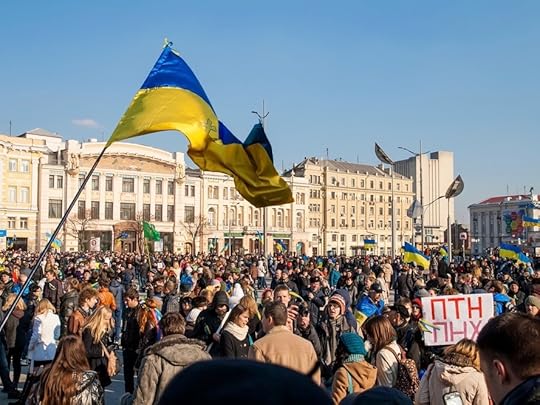 Europe and Central AsiaUkraineRussiaRussian AggressionRussia-Ukraine relationsPutinMilitary
Europe and Central AsiaUkraineRussiaRussian AggressionRussia-Ukraine relationsPutinMilitary
May 24, 2016
Answering the Critics: Donbas Disengagement

What should Ukraine do about the occupied Donbas enclave?
As readers of this blog know, I have long been arguing for disengagement. Critics of my view generally emphasize some or all of the following three points:
First, won’t disengagement help promote Vladimir Putin’s strategic goal of destroying Ukraine?
Second, doesn’t Ukraine have a moral obligation to reannex this territory and its citizens?
Third, what exactly does disengagement entail and how would it be brought about??
All three are serious questions that deserve serious answers. I’ll address the first two questions in this blog and the third in the next one.
Regarding the first, let’s assume, not unreasonably, that Putin’s goal is the destruction of the Ukrainian state. Let’s also recognize a fact of life: Russia is and will remain, at least for the foreseeable future, a far stronger country than Ukraine, both militarily and economically. It follows that Ukraine cannot defeat Russia in any full-scale war. But Ukraine can, with the right mix of armed forces, strategy, and tactics, deter and/or withstand a Russian attack by making it too costly for Russia to undertake such a move under all conditions short of a nuclear assault.
If you agree with this conclusion, then the questions before Ukraine are: does attempting to win back the Donbas enclave strengthen or weaken Ukraine’s capacity to deter a Russian attack? And: does disengaging from the enclave strengthen or weaken Ukraine’s capacity to deter a Russian attack?
I submit that the answer to the first question is a resounding NO: attempting to win back the enclave and defeating its 35,000 heavily armed thugs only exposes Ukraine to a debilitating Russian counterattack and thereby increases the likelihood of a full-scale Russian assault on Ukraine. And even if Ukraine were, miraculously, to defeat Putin’s 35,000 proxies, attempting to occupy and control an economically devastated region inhabited by a population of dubious loyalty to Ukraine would force Ukraine to expend scarce resources on the Donbas and thereby weaken its ability to resist further Russian aggression.
The answer to the second question is a bit more complicated. If Putin’s imperialist appetite is insatiable and unstoppable—i.e. if Putin is preprogrammed to expand regardless of conditions and costs—then he will expand and attack Ukraine regardless of whether it holds on to the enclave or not. Giving it up will no more encourage him to expand than retaining it will deter him from expanding. Alternatively, if Putin’s imperialism is opportunistic and, thus, somehow responsive to costs and benefits, then the important question is whether disengaging from the Donbas will increase the costs or benefits of Putin’s continued aggression.
I submit that disengagement enhances Ukraine’s ability both to forestall aggression and to raise its costs. The reason is simple. The occupied Donbas enclave is an economic black hole that drains enormous resources and provides marginal if any economic benefit to its owner in the foreseeable future. Whoever controls the enclave is, by definition, in a weaker position precisely because the region is a drain on resources and will continue to be so for many years to come. Forcing Russia to bear all the costs of the occupation is Ukraine’s single most effective weapon in the war with Putin. Complete disengagement, which would entail cutting off all social and economic subsidies to the region and its inhabitants, would only raise the costs to Russia and thereby enhance Ukraine’s relative capacity to forestall or withstand an attack.
Just why Putin would be encouraged to attack when the costs of the campaign and occupation would rise and Ukraine’s ability to withstand an attack would grow is unclear. To be sure, he might attack simply because he’s preprogrammed to do so, but, if so, Ukraine’s relative capacity to survive would be enhanced by virtue of Russia’s having to shoulder all the costs of the Donbas occupation.
In sum, disengagement enhances Ukraine’s capacity to stop Russia regardless of whether Putin is driven by an imperial impulse or is merely responding to opportunities to expand.
It’s important to realize that disengagement will not stop Putin’s proxies from continuing to fire on Ukraine and kill its citizens and soldiers. Only Putin can do that. But disengagement does open the door to more possibilities to resolve the conflict diplomatically and politically. As long as Ukraine claims the Donbas enclave, it will be involved in a zero-sum game with the proxies and Russia. Once Ukraine says ‘no’ to the enclave, it can explore imaginative solutions to the conflict precisely because it no longer claims sovereign control over it.
Won’t disengagement violate Ukraine’s moral obligation to the citizens of this benighted region? The answer to this question is simple, and it entails answering the following question: Which is the greater obligation—to 3 million individuals who have demonstrated by their behavior since 1991 that their loyalty to Ukraine is at best questionable or to the 40-plus million Ukrainians in Ukraine who have demonstrated that their loyalty to Ukraine is unquestionable? In an ideal world, policymakers would devote as many resources to one citizen as to all citizens. In a less than ideal world of limited resources, policymakers have to choose and opt for the greater good for the greater number. Seen in that light, promoting the life chances of 40-plus million loyal Ukrainians—by introducing reform, raising living standards, and consolidating democracy and human rights—is by far the greater good than sacrificing lives for a population that may not want to be liberated by Kyiv anyway.
As to what disengagement might look like, stay tuned for my next blog.
OG Image:
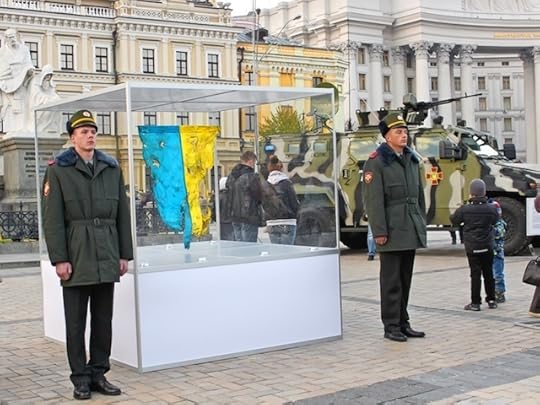 Europe and Central AsiaRussiaUkraine
Europe and Central AsiaRussiaUkraine
May 16, 2016
Dying for the Donbas?

Just about every day, soldiers die. Sometimes, it’s as many as three or four. Sometimes, it’s two or three. Usually, it’s only one.
Only one young life snuffed out—for what?
For the Russian-occupied Donbas enclave. That is to say, for nothing.
I can understand, intellectually, at least, dying for your family or friends, for your country or city or community, for democracy or peace or your nation.
But dying for a piece of crummy land populated by 3 million inhabitants, the vast majority of whom hate Ukraine and everything it stands for? That makes no sense.
Most Ukrainian policymakers and most Ukrainian people appear determined to win back the Donbas territory occupied by Vladimir Putin’s troops and proxies. At the same time, they appear to be equally determined to lead normal lives, as if the war—and make no mistake, it is a war—were taking place in some distant land.
As Ukraine’s restaurants and cafés are abuzz with customers, as policymakers squabble over irrelevant minutiae, as Ukrainians gripe about the declining value of the hryvnia, soldiers who never asked to be sent to the front are dying or, if they’re lucky, only losing their legs.
For what? For the 35,000 thugs in Putin’s proxy army? For the broken down industries and bankrupt coal mines? For the devastated cities and ruined infrastructure?
Or perhaps they’re fighting and dying for Ukraine? For Europe? For democracy? For human rights?
The supreme irony is that Ukraine can survive only without the occupied Donbas. Europe couldn’t care less about the Donbas. And Ukraine’s democracy and commitment to human rights can flourish only if the reactionary occupants of that increasingly Putinized region are kept at arm’s length.
The sad truth is that these poor young men are being sacrificed for nothing.
Ukrainians should ask themselves two questions.
Are they willing to throw away 5-to-10 human lives per week every week for the next twenty years—or even longer? And if they are willing to throw away 250-500 lives every year, would they be just as willing to augment that number by sending their sons and daughters—and grandchildren—to the front?
Ah, many Ukrainians will say, “We need to keep the Donbas, because, if we let it go, Putin will be emboldened to take more territory.”
No, he won’t. He would be emboldened if he defeats the Ukrainian armed forces and does so in a cakewalk. He would not be emboldened if the Ukrainian army engages in a strategic disengagement that strengthens Ukraine’s ability to resist a Russian onslaught. He would be emboldened if the occupied Donbas were an economic boon for Russia. He would not be emboldened if, as is the case, it is, and remains, a massive drain on Russia’s resources.
Sacrificing young lives for the defense of a strategically vital redoubt whose loss would spell defeat would make hard-nosed geopolitical sense. Sacrificing young lives for the defense of a strategically irrelevant cesspool of decay and corruption makes absolutely no sense.
Which brings us back to the ultimate rationale invoked by Donbas-integrators: “It’s sacred Ukrainian territory and we won’t give it up.”
Fair enough, but then go to the front yourself and take your sons and daughters with you.
Just don’t let others do the dying for you.
OG Image:
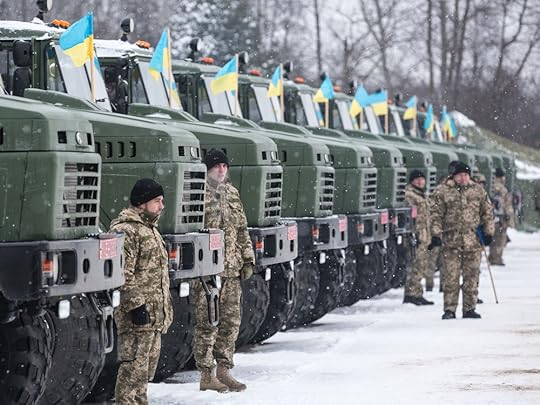 Europe and Central AsiaDonbasRussiaRussianUkraineVladimir Putin
Europe and Central AsiaDonbasRussiaRussianUkraineVladimir Putin
Alexander J. Motyl's Blog
- Alexander J. Motyl's profile
- 21 followers



